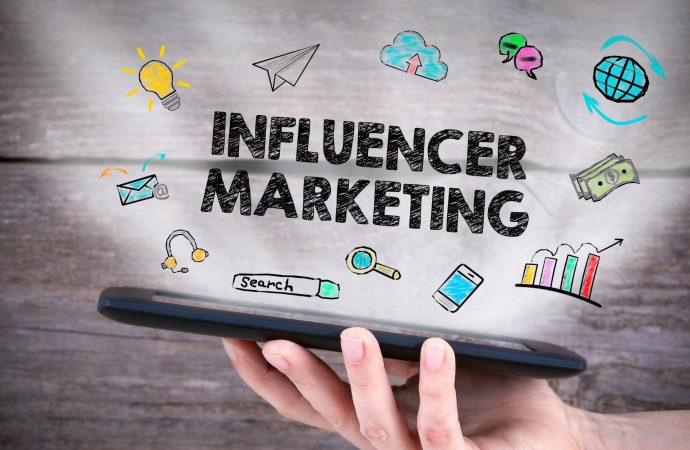In the digital age, social media platforms have evolved from mere communication tools to pivotal marketing instruments. Influencer marketing, a strategy that leverages individuals with a substantial social following to enhance brand awareness and drive sales, has become increasingly significant. This article explores the critical role of social media in influencer marketing, focusing on engagement,
In the digital age, social media platforms have evolved from mere communication tools to pivotal marketing instruments. Influencer marketing, a strategy that leverages individuals with a substantial social following to enhance brand awareness and drive sales, has become increasingly significant. This article explores the critical role of social media in influencer marketing, focusing on engagement, authenticity, platform dynamics, and analytics.
The Emergence of Influencer Marketing
Influencer marketing is not a new concept; it has roots in traditional celebrity endorsements. However, the rise of social media has transformed the scope and efficacy of this marketing approach. Social media has democratized influence, allowing individuals to build substantial followings around niches ranging from beauty and fashion to tech and fitness. These influencers often cultivate a more personal connection with their audience compared to traditional celebrities, making their endorsements seem more genuine and relatable.
Engagement: The Heart of Social Media Influence
Engagement is a cornerstone of social media influencer marketing. Unlike traditional advertising, which often interrupts the consumer experience, influencer marketing thrives on organic and voluntary engagement. Influencers engage their followers through content that is either entertaining, informative, or both, creating a fertile ground for integrating brand messages.
The interactive nature of social media allows followers to comment, share, and like influencer content, which amplifies the reach of the message. Moreover, engagement metrics such as likes, shares, and comments serve as indicators of an influencer’s ability to mobilize their audience, a critical factor for brands in selecting the right partners for their marketing campaigns.
Authenticity and Trust
Authenticity is the currency of effective influencer marketing. Social media users gravitate towards influencers who are perceived as genuine and trustworthy. This trust is cultivated over time through consistent, transparent, and relatable content. When influencers endorse a product or a brand, their followers are more likely to believe in the authenticity of their recommendation, provided it aligns with the influencer’s usual content and personal brand.
For brands, this means that choosing the right influencer who aligns with their values and message is crucial. The perceived authenticity of the endorsement can significantly affect the audience’s reception and response to the marketing message, potentially leading to increased consumer trust and loyalty.
Platform Dynamics
Each social media platform features distinct dynamics and user expectations, influencing how influencer marketing is executed. For instance, Instagram is highly visual, making it ideal for beauty and fashion influencers, while YouTube’s long-form video format is perfect for in-depth reviews and tutorials. TikTok, with its short-form video content, appeals to a younger audience who prefer quick, entertaining clips.
Understanding these platform-specific nuances is vital for both influencers and brands to create content that resonates with the audience. Additionally, the choice of platform can affect the campaign’s reach and effectiveness, depending on where the target audience spends most of their time.

Picture by: Yandex.com
Analytics: Measuring Success
Social media platforms provide a wealth of data that can be analyzed to gauge the success of influencer marketing campaigns. Metrics such as engagement rates, click-through rates, and conversion rates are critical in assessing an influencer’s impact on brand objectives.
Advanced analytics can also help in identifying trends, understanding audience behavior, and optimizing future campaigns for better performance. Brands can leverage these insights to refine their strategies, select the right influencers, and allocate budgets more effectively.
Ethical Considerations and Compliance
As influencer marketing continues to grow, so do concerns regarding transparency and ethics. Regulatory bodies like the Federal Trade Commission (FTC) in the United States have set guidelines requiring influencers to disclose partnerships with brands clearly. This is crucial in maintaining trust among consumers who might feel deceived if endorsements are not explicitly labeled as advertisements.
Conclusion
Social media has irrevocably changed the landscape of influencer marketing. It offers a platform for authentic interactions between brands and consumers, facilitated by influencers who wield significant sway over their followers. As this marketing strategy continues to evolve, understanding the nuances of engagement, authenticity, platform dynamics, and analytics will be essential for brands looking to leverage social media for influencer marketing effectively.
In conclusion, as social media continues to be an integral part of daily life, its impact on marketing strategies, particularly influencer marketing, will only intensify. Brands that can navigate the complexities of influencer partnerships in a transparent and ethical manner will likely see significant benefits in terms of engagement, customer loyalty, and ultimately, sales.
















